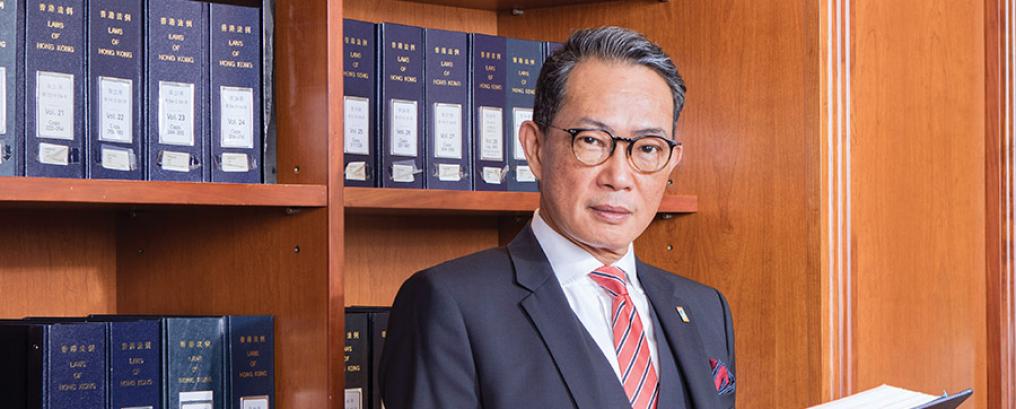Alexander Tang, Senior Associate, Stephenson Harwood, looks at recent developments in cross-border insolvency law adopted by the Hong Kong judiciary to overcome the deficiencies in our outdated insolvency legislation.
There are an increasing number of cross-border insolvency cases dealing with a wide range of interesting legal issues. In this article, we discuss these recent developments which are broadly divided into the following three categories:
- the three core requirements in the winding up of foreign companies
- recognition and assistance to foreign liquidators, and
- cross-border restructuring.
1. The three core requirements for the winding up of foreign companies
It is well established that the most appropriate jurisdiction to wind up a company is the jurisdiction where it is incorporated. While it is
prima facie unusual for a court to wind up a foreign company, the Hong Kong Court is empowered by Section 327 of the Companies (Winding Up and Miscellaneous Provisions) Ordinance (Cap 32) to wind up a foreign company under certain circumstances, for example inability of the foreign company to pay its debts.
In addition to the statutory provisions, common law courts have applied self-imposed constraints known as the three core requirements when considering whether a foreign company should be wound up.
In the shareholder dispute case of
Kam Leung Sui Kwan v Kam Kwan Lai and others [2015] 18 HKCFAR 501 – more commonly known as the Yung Kee case – the Court of Final Appeal confirmed that the three core requirements are:
- there is a sufficient connection with Hong Kong
- there must be a reasonable possibility that the winding up order would benefit those applying for it, and
- the court must be able to exercise jurisdiction over one or more persons in the distribution of the company’s assets.
The Court of Final Appeal explained that for a Hong Kong petition presented by a creditor, in deciding whether there is sufficient connection, the fact that there is a reasonable prospect that the petitioner will derive a sufficient benefit from the making of a winding up order, whether by the distribution of its assets or otherwise, will always be necessary and often sufficient. It was decided that the same question should be applied to a shareholder petition, but the factors for consideration are different. For a creditor petition, the presence of significant Hong Kong assets for distribution amongst creditors will usually establish a sufficient connection. In a shareholder petition, the presence of shareholders within jurisdiction is highly relevant and will usually be the single most important factor.
In the Yung Kee case, the company to be wound up was a British Virgin Islands (BVI) holding company which in turn owned a BVI subsidiary. The BVI subsidiary was the majority shareholder of a number of Hong Kong and other BVI subsidiaries which owned valuable Hong Kong real estate. The corporate structure was designed by the shareholders to minimise Hong Kong tax and estate duty. It was argued successfully before the Court of First Instance and the Court of Appeal that the company had no connection with Hong Kong because all it owned were shares of the wholly owned BVI subsidiary. This was, however, overruled by the Court of Final Appeal which held that the connection between the holding company and the underlying assets of the corporate group was not broken by the interposition of the company’s wholly owned BVI subsidiary.
The three core requirements were more recently considered in the case of
Shandong Chenming Paper Holdings Ltd v Arjowiggins HKK Ltd HCMP 3060 of 2016, concerning a foreign company failing to honour the payment of an arbitral award.
Shandong Chenming is a People’s Republic of China (PRC) company listed in both Shenzhen and Hong Kong. The company was solvent with substantial assets in the PRC, but had no Hong Kong assets or business operations. A statutory demand was served by a creditor of Shandong Chenming based on an unpaid arbitral award which was registered for enforcement in Hong Kong. While not disputing that the arbitral award was payable, Shandong Chenming sought a declaration from the Hong Kong court that the second core requirement was not satisfied, that is the creditor would not benefit from a winding up order in Hong Kong. This was because of the old age difficulty of Hong Kong liquidators being unable in a practical sense to take control of and sell PRC-based assets. If the application by Shandong Chenming was successful, it would have barred a winding up petition from being presented by the creditor. Shandong Chenming argued that the proper course for the creditor was to enforce the arbitral award in the PRC.
Taking into account the listed shares, the corporate structure of Shandong Chenming and its company’s articles of association, the Court concluded that the value of its Hong Kong listing status was incapable of providing any material benefit to its creditors. Nevertheless, the court found that the creditor would still benefit from a winding up order as Shandong Chenming would be expected to satisfy the arbitration award because of the immediate and severe consequences of a winding up order. For instance, Shandong Chenming’s management in Hong Kong would be assumed by the liquidators; the liquidators would investigate management conduct; any share transfer since the presentation of the winding up petition would be void unless otherwise approved by the court; and Shandong Chenming’s status as a listed company in Hong Kong would be jeopardised. The court also decided that there was a public interest consideration and this point underpinned the judgment. Shandong Chenming’s refusal to honour the arbitral award showed its flagrant disregard for the Hong Kong legal system, which did not sit well with the Companies Judge. He noted that if a company wants to be Hong Kong listed it should respect the court’s decision to allow the award to be enforced in Hong Kong.
Apart from being a strong message from the Hong Kong court that it will not tolerate foreign companies seeking to evade payment of a judgment debt and/or arbitral award, the case showed that benefits to be obtained from a winding up order against a foreign company will be interpreted broadly by the court and also that public interest considerations will be taken into account.
2. Recognition and assistance to foreign liquidators
A company’s assets and information may often be located outside its place of incorporation. The quickest way that foreign liquidators can seek recognition and assistance is where a country adopts the UNCITRAL Model Law on cross-border insolvency which establishes simplified procedures for the recognition of foreign insolvency proceedings. At present, about 45 jurisdictions have adopted the UNCITRAL Model Law, but Hong Kong is not a party.
In the past, foreign liquidators seeking assistance from Hong Kong courts had to wind up the foreign company and appoint themselves as local liquidators in order to avail themselves of statutory investigative powers. This inevitably incurs time and costs, and may not always be successful. By way of an example, in the case of
Re China Medical Technologies Inc [2014] 2 HKLRD 997, the court initially found that the three core requirements were not met and dismissed the winding up petition. It was only after new evidence was uncovered suspecting a significant part of the company’s assets were misappropriated in Hong Kong through a number of Hong Kong bank accounts operated by persons in Hong Kong, that the court eventually allowed the company to be wound up in order to avail the foreign liquidators of statutory investigative powers.
The landmark case of
Joint Official Liquidators of A Co v B & C [2014] 5 HKC 152 has entirely changed the practice of foreign liquidators seeking recognition in Hong Kong. The Hong Kong court granted a recognition order to Cayman liquidators pursuant to a letter of request from the Cayman Court. The case was the first reported Hong Kong judgment confirming a private international law principle, namely that the authority of a liquidator appointed under the law of the company’s place of incorporation should be recognised in Hong Kong. The significance of the principle is that if a party (for example a bank) receives a request from a liquidator of a foreign company, it should respond in the same way as if the request were made from a director of the foreign company. The previous practice of Hong Kong-based banks, however, was that they would request foreign liquidators to produce a Hong Kong court order before disclosing bank records.
Even though Hong Kong has not adopted the UNCITRAL Model Law, since the
Joint Official Liquidators case, there is now a quick alternative mechanism for foreign liquidators appointed by a jurisdiction similar to Hong Kong to obtain information and documents without first having to domestically petition for the winding up of the foreign company.
Assets are, however, treated differently from information. If the foreign company has assets in Hong Kong, foreign liquidators are still required to obtain a vesting order from the Hong Kong court to obtain title to the subject assets.
3. Cross-border restructuring
Corporate restructuring in Hong Kong is often carried out via a scheme of arrangement under which a debt compromise reached between the company and 50% in number and 75% in value of creditors (following endorsement of the deal by the court) is imposed on all creditors – in other words, a court imposed cram down. Different from the winding up of a foreign company, the justification for exercising the court’s power to sanction a foreign company’s scheme of arrangement is found only in the first core requirement, namely, that the scheme has a sufficient connection with Hong Kong.
A typical Hong Kong cross-border restructuring case involves an offshore company (for example a BVI company) listed in Hong Kong which has an offshore debt (for example governed by New York law or English law). The primary issue is how the offshore debt can be compromised and recognised to be enforceable in the different jurisdictions.
According to the old English principle known as the
Gibbs Rule laid down in
Antony Gibbs & Sons v La Societe Industrielle et Commerciale des Metaux [1890] 25 QBD 399, a foreign composition does not discharge a debt unless it is discharged under the law governing the debt. A scheme of arrangement in the jurisdiction of the governing law of the debt is therefore crucial and restructuring of the type of cases mentioned above will inevitably involve parallel schemes in multi-jurisdictions. The principle is followed by most common law jurisdictions including Hong Kong.
In the case of
Re Winsway Enterprises Holdings Ltd [2017] 1 HKLRD 1, the Hong Kong court sanctioned a local scheme in which the offshore debt was governed by New York Law. While the US does not have a mechanism which is equivalent to a scheme of arrangement, the US Bankruptcy Court was prepared to grant recognition of the proceedings in Hong Kong and ancillary relief necessary to compromise the debt in the US pursuant to Chapter 15 of the US Bankruptcy Code. A parallel scheme was also sanctioned by the BVI court. The schemes and proceedings in various jurisdictions therefore enabled the debt governed by New York law to be compromised.
Singapore has recently and rather controversially not followed the
Gibbs Rule in the judgment of
Pacific Andes Resources Development Ltd [2016] SGHC 210. The main argument against the Gibbs Rule relied upon by the Singapore court is that it focuses on the contractual terms between the parties but fails to recognise that the statutory insolvency regime only comes into play to determine a creditor’s entitlement when the debtor company becomes insolvent. Also, it was argued that the
Gibbs Rule is not in line with the general modern approach of the courts which recognises that the administration of an insolvent company should be implemented by a primary court applying a single bankruptcy law. The ultimate and practical effect of not following the
Gibbs Rule is that the debtor company will save substantial costs as it does not have to commence parallel schemes. It remains to be seen whether Hong Kong and other common law jurisdictions will follow the Singapore approach.
A major problem with Hong Kong schemes of arrangement is the absence of a statutory moratorium. Creditors opposing the scheme can derail the process by presenting a winding up petition. Companies routinely appointed provisional liquidators to create a de facto moratorium when applying for a scheme of arrangement. However, in the case of
Re Legend Resorts International Limited [2006] 3 HKC 565, the Court of Appeal held that the appointment of provisional liquidators over an insolvent company cannot be done solely for the purpose of a corporate restructuring.
In the recent case of
Z-Obee Holdings Limited HCMP 1563 of 2017, the Hong Kong court allowed the parties to adjourn the hearing of a winding up petition of a Bermuda company so that the Hong Kong provisional liquidators could apply to be appointed as provisional liquidators in Bermuda. The Bermuda provisional liquidators, who can carry out corporate restructuring under their laws, then applied to seek recognition in Hong Kong by way of a letter of request and introduced parallel schemes to effect a restructuring in both Bermuda and Hong Kong. This was an innovative use of the common law judicial assistance powers to facilitate cross-border restructuring, and is expected to be used more often to get around the restriction imposed by Re Legend.
Conclusion
There are a wide range of recent developments in cross-border insolvency law adopted by the Hong Kong judiciary to overcome the deficiencies in our outdated insolvency legislation. This has enabled Hong Kong to remain relevant amongst other jurisdictions like Singapore, Cayman Islands and Malaysia in an increasingly competitive insolvency and restructuring market.
Alexander Tang, Senior Associate
Stephenson Harwood
The author is a restructuring and insolvency lawyer, and holds a specialist qualification in insolvency awarded by the Hong Kong Institute of Certified Public Accountants. He can be contacted at: alexander.tang@shlegal.com.
Copyright: Alexander Tang of Stephenson Harwood


